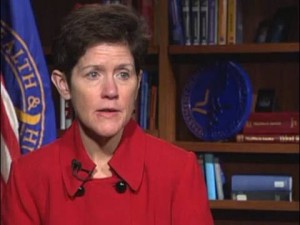Who is responsible when a patient is misdiagnosed because the patient’s physician read a clinical laboratory test report incorrectly?
Could clinical pathologists be held responsible for medical errors caused by other providers? That’s a possibility under a proposal from the federal Agency for Healthcare Research and Quality (AHRQ).
AHRQ is seeking approval for a prototype of a new reporting system for medical errors, AHRQ Director Carolyn M. Clancy, M.D., told The New York Times in a story published on September 22, 2012. “Currently there is no mechanism for consumers to report information about patient safety events,” she said.
After funding the development of a prototype error-reporting system, AHRQ now wants approval from the federal Office of Management and Budget to test the prototype, the newspaper reported.
25% of Patients Experience Adverse Medical Events
About 25% of patients experience adverse events when receiving medical care, the New York Times reported. In 1999, the Institute of Medicine estimated in its landmark report, To Err Is Human: Building a Safer Health System, that at least 44,000 people, and perhaps as many as 98,000 people, die in hospitals each year as a result of preventable medical errors.
Errors When Physicians Misread Clinical Laboratory Test Results
But what happens when a patient is misdiagnosed because a patient’s physician reads a medical laboratory test report incorrectly? Or what happens when clinicians at a hospital rely on point of care testing (POCT) but fail to confirm the POCT results against those from tests run in the hospital’s core clinical laboratory, as The Dark Report reported last year? (See “Point of Care Testing Plays Role in Penna. Patient’s Death,” The Dark Report, September 26, 2011.)

Officials at the federal Agency for Healthcare Research and Quality are advocating for a new system of reporting medical errors. In a New York Times story, AHRQ Director Carolyn M. Clancy, M.D., explained a new proposal to provide patients with more effective ways to report medical errors. This is a development that should be watched by pathologists and clinical laboratory managers, since physicians frequently fail to properly interpret and act upon significant medical laboratory test results. (Photo copyright New York Times.)
And who is to blame if physicians discharge a hospitalized patient before reviewing lab results and the patient dies later? A child died earlier this year after being sent home before the treating physician had reviewed the clinical lab test results, according to a report in the New York Times in July. This child’s death might have been prevented if the hospital staff had reviewed the clinical laboratory test results before the patient was discharged, the newspaper reported.
In adverse events, is it possible that the hospitals’ clinical laboratories could be cited for having some role, even though some observers might suggest that the labs’ involvement was secondary to the causes of these errors? AHRQ has not yet addressed this question.
Encouraging Patients to Report Medical Errors
For its part, the AHRQ suggested that patients or relatives could report errors on a website or over the telephone, the New York Times reported. Therefore, under the AHRQ proposal, a medical laboratory might be implicated if patients and their relatives report medical errors. For each adverse event, the government would collect such information as when and where the harm occurred, the type of harm, any contributing factors, and whether the patient reported the event and to whom, the newspaper reported.
There are several situations in which a patient might report a medical error, the newspaper reported, such as if doctors, nurses, or other health care providers:
- Do not communicate well with the patient or the patient’s family
- Do not respect the patient’s race, language, or culture
- Do not seem to care about the patient
- Were too busy
- Do not spend enough time with the patient
- Failed to work together
- Were not aware of care received at another facility.
AHRQ often finds that medical mistakes go unreported, and patients have information that could help regulators and providers understand the cause of errors, the New York Times reported. A questionnaire that AHRQ has prepared asks patients to report the name and address of the doctor, nurse, or other health care provider involved in the mistake. The questionnaire asks patients for permission to share the reports with health care providers so they can learn about what went wrong, the newspaper said.
“Patient reports could complement and enhance reports from providers and thus produce a more complete and accurate understanding of the prevalence and characteristics of medical errors,” Clancy told the Times.
Federal Reimbursement Policy for Medical Errors
For clinical laboratory directors and pathologists, one serious concern about any change in federal policy regarding medical errors is whether new guidelines would affect reimbursement. After all, since 2008, the federal Centers for Medicare & Medicaid Services (CMS) has refused to pay for some medical errors. The effort to stop payment has been limited to certain “never events,” which CMS defines as serious, preventable and costly, such as wrong-site surgery. But, it is possible that CMS could extend its no-payment policy to other types of medical errors.
—Joseph Burns
Related Information:
New System for Patients to Report Medical Mistakes
To Err is Human: Building A Safer Health System
After Boy’s Death, Hospital Alters Discharging Procedures
Ending Extra Payment for “Never Events” — Stronger Incentives for Patients’ Safety
Guide to Applying Best Practices for Anatomic Pathology QA



